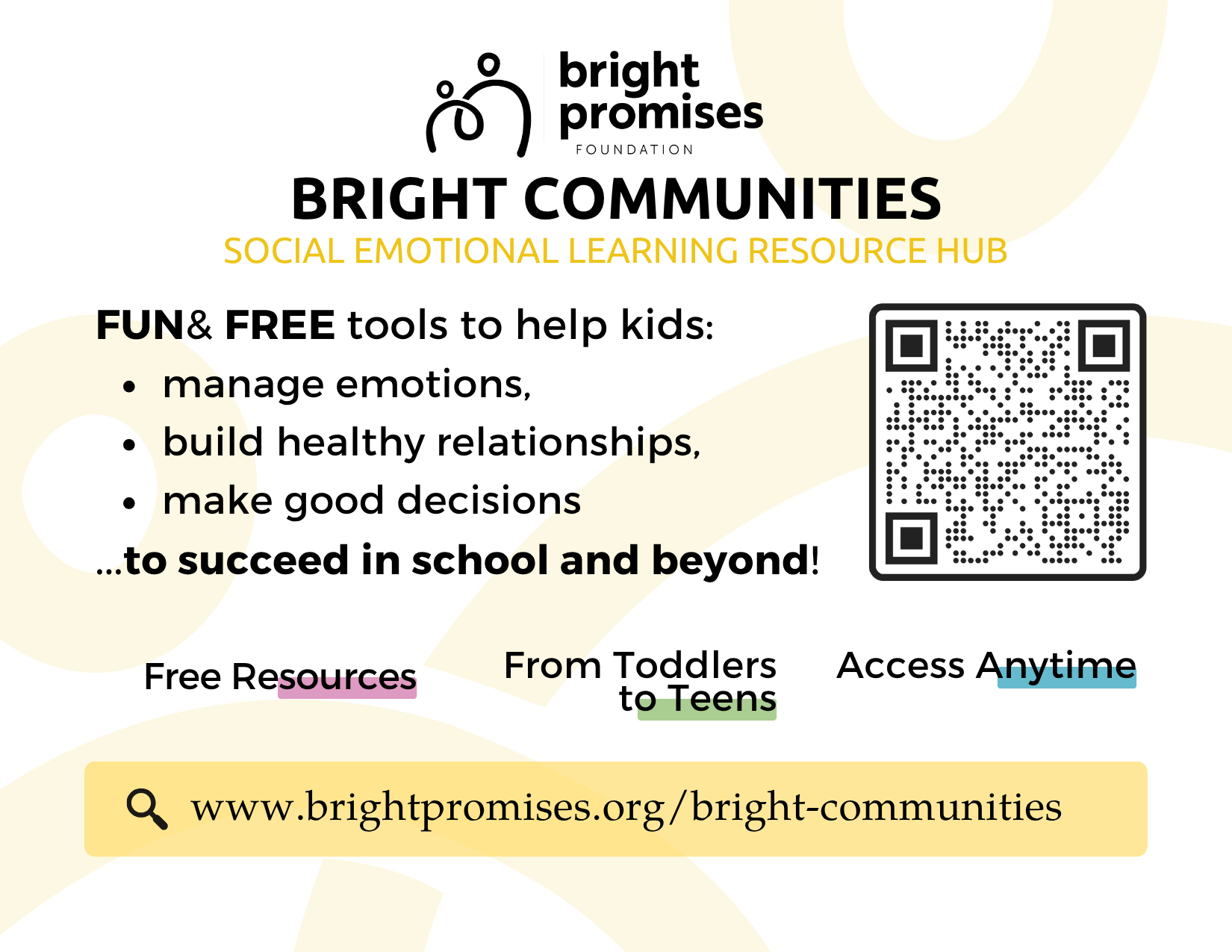Funding Upstream: Unpacking Our Grantmaking Approach
What is Focused Funding? In 2009, the Bright Promises Foundation gathered with experts to study current funding practices for child services in Illinois. Together with these experts, Bright Promises identified a lack of and need for financing of social innovation. A funding gap existed for supporting cutting-edge programs that are on the forefront of the next biggest issue facing at-risk children.
Bright Promises determined to fill this gap and take an “upstream” approach to serving at-risk children, generating systemic change by supporting programs that implement research-based approaches and rely on the knowledge of experts to address emerging issues.
Further study of child services in Illinois indicated a 4 year cycle of change for emerging social issues. Therefore, every four years Bright Promises convenes multiple panels of experts to determine our next Focused Funding initiative based on the most pressing, unmet needs of children at that time.
How does the Focus Panel process work? The Bright Promises Foundation brings together three different groups of experts for our Focus Panel process. The first panel is made of up experts from all across the child-serving community representing a variety of fields. We ask these experts one question: What is the most pressing need of at-risk children in Illinois that is currently under-recognized and underfunded? After extensive discussion and additional research, our first Focus Panel identifies which emerging issue needs Bright Promises’ focus the most.
Then, Bright Promises gathers a new group of experts from fields specifically related to the issue identified by the first Focus Panel. This second Focus Panel is asked to recommend specific methods and models for how to address this particular emerging issue, using current research and their knowledge of existing programs and agencies that require support to inform their recommendations.
Based on all of this information, the Bright Promises Foundation creates guidelines and accepts proposals from organizations and agencies that need support either for new or existing programs working to address the current Focused Funding issue. Bright Promises commits to a six-year funding cycle for our Focused Funding initiatives to ensure that the programs we support generate sustainable social change.
How does Bright Promises know it is making a difference? The final key component of our Focused Funding initiatives is thorough external evaluation that measures the impact and sustainability of the programs supported by the Bright Promises Foundation.
An evaluation is conducted at the midpoint of the funding cycle and the results are used to adapt best practice and correct any challenges to the sustainability of the programs. A final evaluation is conducted at the end of the funding cycle to determine the success of the programs and the ongoing impact on the communities served. Bright Promises also uses the results of these evaluations to determine the effectiveness of the Focused Funding process and to make changes for the next initiative.
What is Focused Funding? In 2009, the Bright Promises Foundation gathered with experts to study current funding practices for child services in Illinois. Together with these experts, Bright Promises identified a lack of and need for financing of social innovation. A funding gap existed for supporting cutting-edge programs that are on the forefront of the next biggest issue facing at-risk children.
Bright Promises determined to fill this gap and take an “upstream” approach to serving at-risk children, generating systemic change by supporting programs that implement research-based approaches and rely on the knowledge of experts to address emerging issues.
Further study of child services in Illinois indicated a 4 year cycle of change for emerging social issues. Therefore, every four years Bright Promises convenes multiple panels of experts to determine our next Focused Funding initiative based on the most pressing, unmet needs of children at that time.
How does the Focus Panel process work? The Bright Promises Foundation brings together three different groups of experts for our Focus Panel process. The first panel is made of up experts from all across the child-serving community representing a variety of fields. We ask these experts one question: What is the most pressing need of at-risk children in Illinois that is currently under-recognized and underfunded? After extensive discussion and additional research, our first Focus Panel identifies which emerging issue needs Bright Promises’ focus the most.
Then, Bright Promises gathers a new group of experts from fields specifically related to the issue identified by the first Focus Panel. This second Focus Panel is asked to recommend specific methods and models for how to address this particular emerging issue, using current research and their knowledge of existing programs and agencies that require support to inform their recommendations.
Based on all of this information, the Bright Promises Foundation creates guidelines and accepts proposals from organizations and agencies that need support either for new or existing programs working to address the current Focused Funding issue. Bright Promises commits to a six-year funding cycle for our Focused Funding initiatives to ensure that the programs we support generate sustainable social change.
How does Bright Promises know it is making a difference? The final key component of our Focused Funding initiatives is thorough external evaluation that measures the impact and sustainability of the programs supported by the Bright Promises Foundation.
An evaluation is conducted at the midpoint of the funding cycle and the results are used to adapt best practice and correct any challenges to the sustainability of the programs. A final evaluation is conducted at the end of the funding cycle to determine the success of the programs and the ongoing impact on the communities served. Bright Promises also uses the results of these evaluations to determine the effectiveness of the Focused Funding process and to make changes for the next initiative.








.svg)

